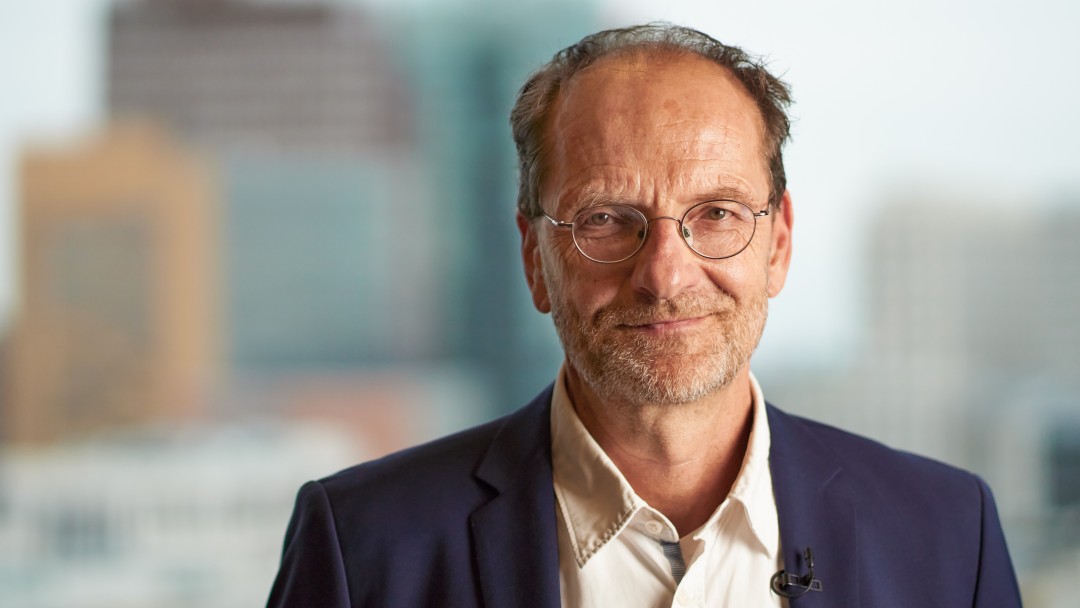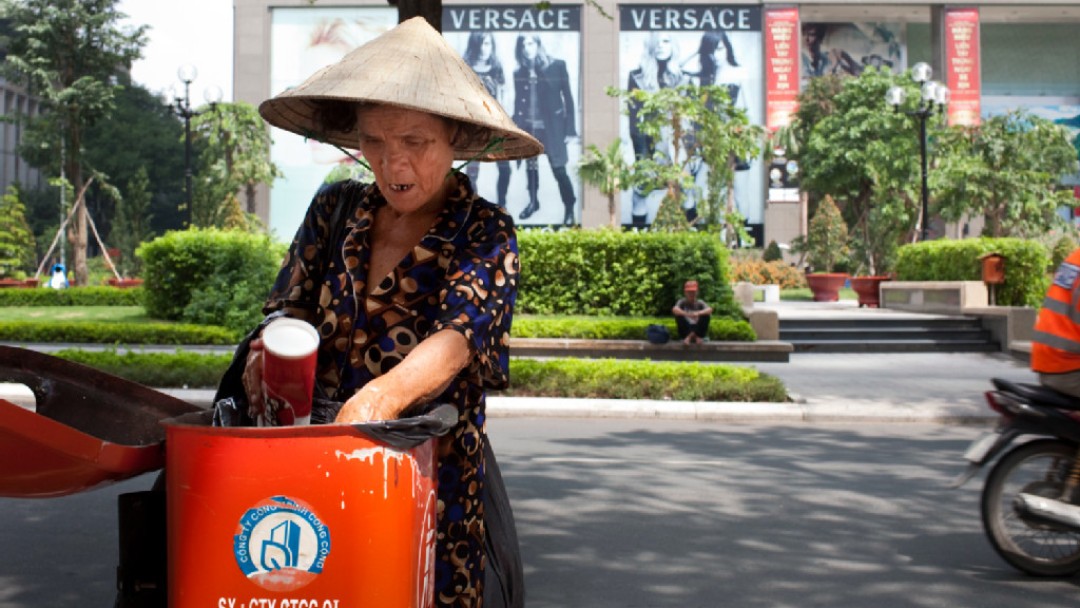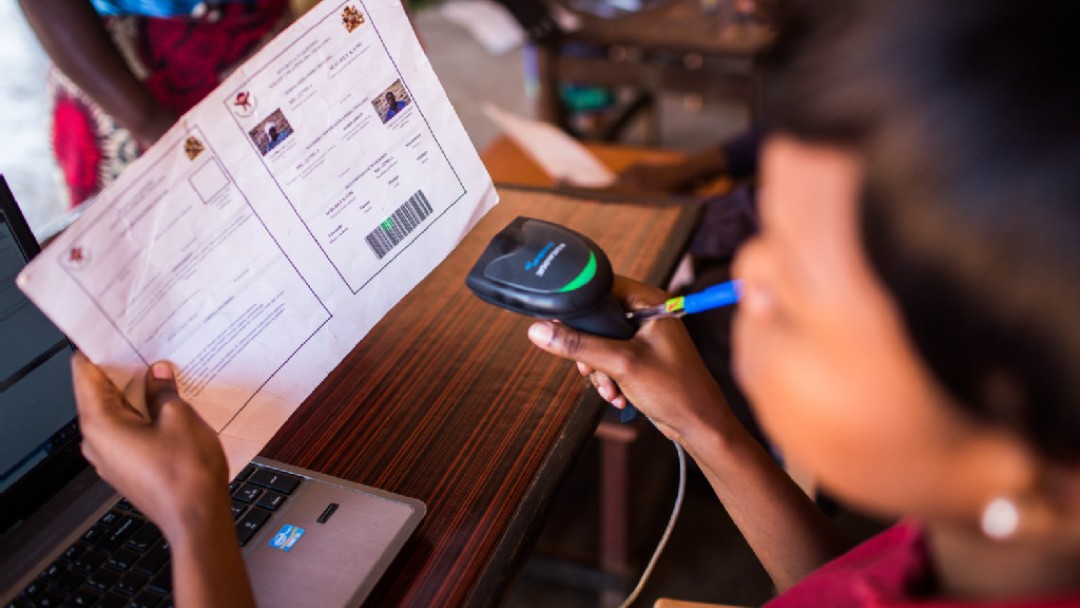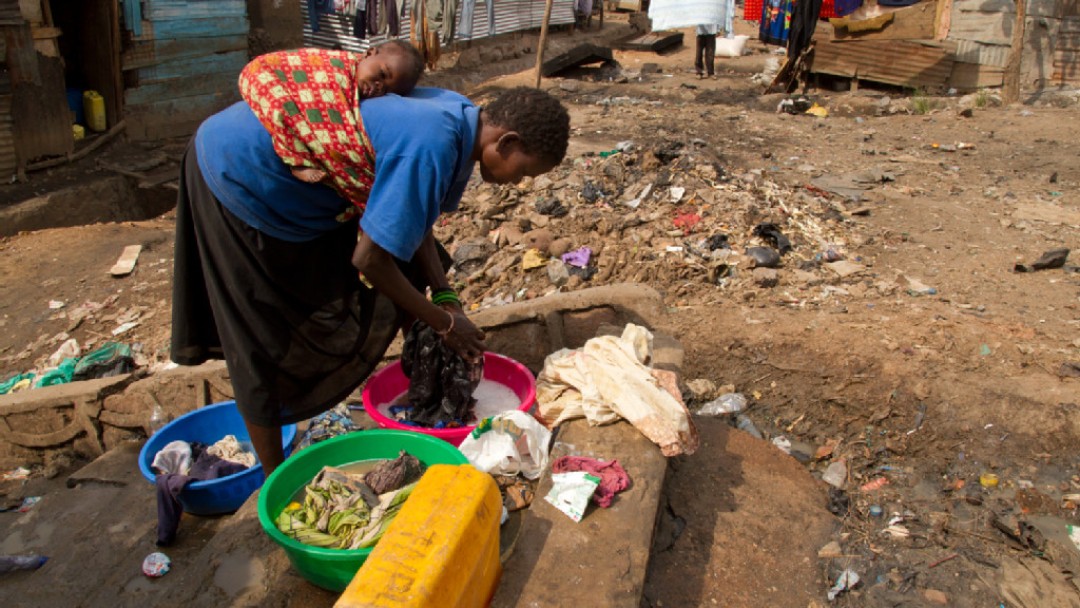Interview with Dr Jürgen Zattler
“There is a system behind the crises”Dr Jürgen Zattler, former Director General for International development policy and United Nations, 2030 Agenda, social and environmental transformation, climate at the BMZ, in an interview with Friederike Bauer on poverty and development policy in times of various, overlapping crises. His verdict: new breakpoints will continue to emerge for as long as we do not operate more sustainably.
Published 17 October 2022, updated 17 October 2023.

In a way, although I wouldn’t put it quite like that. Developing countries have made great progress over the past 20 years. This positive trend was reflected in economic growth and poverty rates, which have fallen sharply. And not only in China, but also in Africa, for example. The current crises have put a stop to this development; inequality between and within countries is on the rise again. I think both are a major challenge. In addition, this growth has been and continues to be achieved at the expense of nature – here we are reaching our limits or have already passed them.
There is an ongoing, heated discussion among scientists about this. I myself tend to think that both can be combined. If we steer our economy towards sustainability, this means high levels of investment. And that means work and income. This applies to the energy sector, for example. We have to invest massively in this area, which in turn generates net income and economic growth.
It could be that the conflict between raw material consumption and economic activity will become more acute at some point and we will then have to act differently. But for now, I do not consider this conflict to be the core problem, but rather mobilising the necessary investments in this development towards sustainability. Many crises that we are currently experiencing have one main cause: our economic and consumer behaviour is not sustainable. And this is what we need to achieve otherwise we will continue to lose development progress and cause more poverty.
The current challenges – the pandemic and Russia’s war of aggression – have worsened the poverty situation worldwide. Previously we had around 700 million people living in poverty in the world, maybe a little less, despite a growing world population. In the meantime, this figure has gone up by at least 100 million people, and even by up to 300 million people according to some estimates. In any case, the number has increased massively. It’s important to remember that these aren't just abstract numbers, many tragic, individual fates are behind them. Overall, we are seeing severe consequences for developing countries, which have stopped or even reversed the favourable trend of the past two decades.

I agree. Poor people already had to spend a larger part of their income on food. Inflation exacerbates the problem. On average, an African spends 75% on food; in rich countries it is around 25%, and in Germany it was even lower in the past. The consequences of the war are hitting harder there even though we may not be able, or want to see this at the moment while we are preoccupied with our own problems.
First of all, it is important to recognise that these crises will last as long as we do not live sustainably; there is a system behind them. Unless we change course much more resolutely than before, one crisis will follow another. The pandemic is linked to environmental stress. Refugee movements are increasingly caused by climate change. And the war in Ukraine is hitting us all the more because we are still too dependent on fossil fuels. The list is long but what matters is the realisation that we are constantly creating breakpoints as long as we maintain this unsustainable way of doing business.
We must adapt to this overall situation and better combine short-term responses to immediate crises – such as hunger or floods – and long-term development. If we don’t, we will soon only be able to support emergency programmes with our funds.
Certainly, but not only. I think we need to become even more innovative. At the Federal Ministry for Economic Cooperation and Development (BMZ), we see a promising approach in the shape of innovative, adaptive social safety nets.

In normal times, we try to identify and support the poorest and most vulnerable people and to record information about them digitally too. If there is an exceptional crisis, such information can be used to provide even more support to these sectors of the population. For example, if there is a drought in the Sahel or East Africa, we can use such systems to provide farmers with seeds so that they can still grow crops. Or they can get information about animal health, so they can save their livestock even during a difficult period. Such “conditional cash transfers” – services linked to conditions – assist in times of need and stressful situations, but work best via an established social security system. This combines long-term structural measures with short-term support.
You could call it that, yes. Let me give you another example. The German Federal Government has proposed to establish a package of measures to protect against climate-related risks. Here, too, those most in need are identified. If a climate-related crisis then occurs, we can help directly and swiftly. Overall, we need to think more structurally and less in terms of individual projects.
Absolutely. We need to become more digital. But we must also pay attention to how developing countries can benefit from digitalisation. Then we have completely new possibilities, for example, via such a protection package, but also via precision agriculture, in which, thanks to digital means, much less water goes to the fields and fertilisers are applied in a very targeted manner. This opens up many new opportunities to drive the SDGs forward.
It’s not easy to obtain reliable data here. But one thing is certain, women are more affected, and rural areas too. And then there are large regional differences that frequently have to do with natural prerequisites. Minorities and people with disabilities are also at greater risk of poverty.

We are in the process of defining the goals of a feminist development policy even more precisely and translating them into operational targets. We are currently developing the concepts for this but it will take some time. It will certainly mean involving women more, improving their position, giving them more resources and involving them more in problem solving.
It will not be easy, we are struggling with budgetary stress here ourselves. On the other hand, I also see an increasing awareness among many people that failure to act now will come at a higher price in the future or will affect us in other ways, for example in the form of pandemics.
We still have seven years until 2030 and the current indicators are not favourable. I believe that achieving the SDGs will be very difficult. Nonetheless, we should not abandon the goals ahead of time, but work with all means at our disposal and much creativity to reverse the current trend.
Share page
To share the content of this page with your network, click on one of the icons below.
Note on data protection: When you share content, your personal data is transferred to the selected network.
Data protection
Alternatively, you can also copy the short link: https://www.kfw-entwicklungsbank.de/s/enzBY0mC
Copy link Link copied